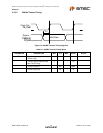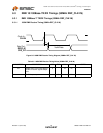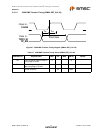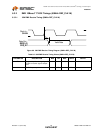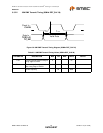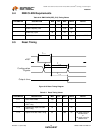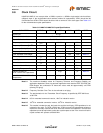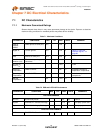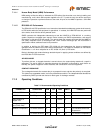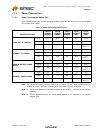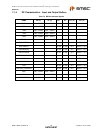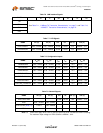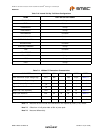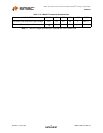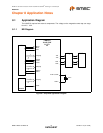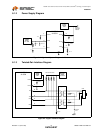
MII/RMII 10/100 Ethernet Transceiver with HP Auto-MDIX and flexPWR
®
Technology in a Small Footprint
Datasheet
SMSC LAN8710/LAN8710i 67 Revision 1.0 (04-15-09)
DATASHEET
7.1.1.1 Human Body Model (HBM) Performance
HBM testing verifies the ability to withstand the ESD strikes like those that occur during handling and
manufacturing, and is done without power applied to the IC. To pass the test, the device must have
no change in operation or performance due to the event. All pins on the LAN8710 provide +/-5kV HBM
protection.
7.1.1.2 IEC61000-4-2 Performance
The IEC61000-4-2 ESD specification is an international standard that addresses system-level immunity
to ESD strikes while the end equipment is operational. In contrast, the HBM ESD tests are performed
at the device level with the device powered down.
SMSC contracts with Independent laboratories to test the LAN8710 to IEC61000-4-2 in a working
system. Reports are available upon request. Please contact your SMSC representative, and request
information on 3rd party ESD test results. The reports show that systems designed with the LAN8710
can safely dissipate ±15kV air discharges and ±15kV contact discharges per the IEC61000-4-2
specification without additional board level protection.
In addition to defining the ESD tests, IEC 61000-4-2 also categorizes the impact to equipment
operation when the strike occurs (ESD Result Classification). The LAN8710 maintains an ESD Result
Classification 1 or 2 when subjected to an IEC 61000-4-2 (level 4) ESD strike.
Both air discharge and contact discharge test techniques for applying stress conditions are defined by
the IEC61000-4-2 ESD document.
AIR DISCHARGE
To perform this test, a charged electrode is moved close to the system being tested until a spark is
generated. This test is difficult to reproduce because the discharge is influenced by such factors as
humidity, the speed of approach of the electrode, and construction of the test equipment.
CONTACT DISCHARGE
The uncharged electrode first contacts the pin to prepare this test, and then the probe tip is energized.
This yields more repeatable results, and is the preferred test method. The independent test laboratories
contracted by SMSC provide test results for both types of discharge methods.
7.1.2 Operating Conditions
Table 7.3 Recommended Operating Conditions
PARAMETER CONDITIONS MIN TYP MAX UNITS COMMENT
VDD1A, VDD2A To VSS ground 3.0 3.3 3.6 V
VDDIO To VSS ground 1.6 3.3 3.6 V
Input Voltage on
Digital Pins
0.0 VDDIO V
Voltage on Analog I/O
pins (RXP, RXN)
0.0 +3.6V V
Ambient Temperature T
A
LAN8710-AEZG 0 +85
o
C For Extended Commercial
Temperature
T
A
LAN8710i-AEZG -40 +85
o
C For Industrial Temperature



